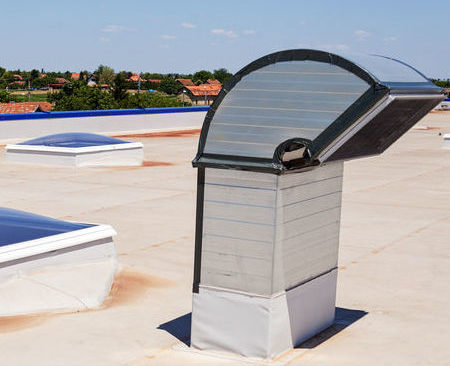
There are diverse roofing options available in the market today. However, it can be difficult to decide the best one for your NYC home. One of the most popular roofing systems is the TPO. It has more advantages than the PVC, which makes it a better choice for homeowners.
In this piece, we'll discuss more about the benefits of each roofing option and why you should install one of them in your NYC home.
The TPO roofing system is made from the combination of polyethylene thermoplastic or ethylene with ethylene propylene rubber. Its final product is a waterproof, durable, and flexible material suitable for the long-term protection of your home from water intrusion.
On the other hand, PVC roofing systems are made with vinyl chloride monomers to create a more tough membrane than the TPO roofs. However, they emit highly-concentrated toxic gases over time. TPO and PVC roofing systems are rivals in material composition.
Over time, it has been proven that TPO roofs are weather-resistant, and most manufacturers are investing heavily in this material. Even though PVC remains a great alternative, there are arrangements to make more of the TPO panels since there's a rising demand and increase in investment by large industries.
Additionally, in terms of accelerated weather testing and heat aging, TPO roofs are more reliable than PVC. Plus, it has some features that most homeowners need for their buildings. For instance, while TPO is better in weather resistance with slightly better break and tear strength than PVC, the PVC roofing system is excellent at chemical resistance, with zero absorption of oil or grease from the roof vent traps of the building.
Here are some of the common advantages and disadvantages of TPO roofing.
Advantages:
Disadvantages:
Of course! The TPO roofing material is highly durable and can resist wear, tear, dirt, and puncture. Its flexibility makes it more suitable for roofs with single ply because of its ability to reduce contraction and expansion due to the changes in the building width which is caused by temperature fluctuations.
Also, the TPO single-ply roofing systems will provide your NYC home with more longevity than other products like the asphalt shingles. With TPO, you won't need to constantly repair your roof. Its hot-air welded seams provide six times more strength than glued seam materials or those with taped edges.
Additionally, TPOs can last for a long time. Research shows that there are TPO roofing systems that have lasted up to 22 to 30 years before replacement. It's even better than the asphalt shingles that last for just 12 years.
The average lifespan is around 30 years. Sometimes, they exceed that period depending on how well it's installed and taken care of overtime.
The average cost of a new TPO roof is around $25 to $50 per square foot. It is cheaper than the PVC roofing which costs between $35 to $60 per square foot. For installation, materials are priced at around $2000 and labor costs about $150 for a day.
The TPO roofing system is more costly because it is made up of high-quality ingredients that make them last longer without requiring maintenance like other roof types (like the asphalt shingle roofs that need to be replaced every 12 years on average).
Interestingly, you'll be saving some money if this roof lives up to expectations. Besides, buildings (such as motels and hotels) with high turnover rates that are used regularly for functions will work well with TPO roofing. You won't be making a bad decision getting the TPO roof as it is worth the investment.
PVC is a vinyl plastic roofing system made of polyvinyl chloride and it comes in varied styles including single-ply membrane roofs. For the records, this roof has been in existence since the 1970s. Plus, its cost of production is cheap and it's easy to install on commercial properties with high turnover rates. But, they're not as durable as the TPO roofs.
PVC can withstand any level of exposure to sunlight without losing its quality. It’s the best product when combined with other elements within an outdoor area where there isn’t much natural shade coverage.
In addition, while TPO and PVC have some features in common, they also come with unique advantages which differ depending on the purpose of a particular project.
Most of all, PVC is more resistant to chemicals and has a good level of impact resistance. On the other hand, TPO has a low permeability, Hence, it'll only last longer in areas with harsh weather conditions like snowstorms or hurricanes. If you need a better roof for your NYC home, it'll be better to install PVC instead.
Conclusion
TPO and PVC roofs are both suitable for commercial, institutional, and industrial roofing projects. However, you must understand what exactly makes a roofing material the best by weighing its pros and cons. Most of all, it's essential that you buy your roof from an experienced contractor like us to get a high-quality product.
Contact us at our office at 1274 5th Ave New York, NY 10029, or call (212) 457-1324 https://bestroofingnyc.com/.